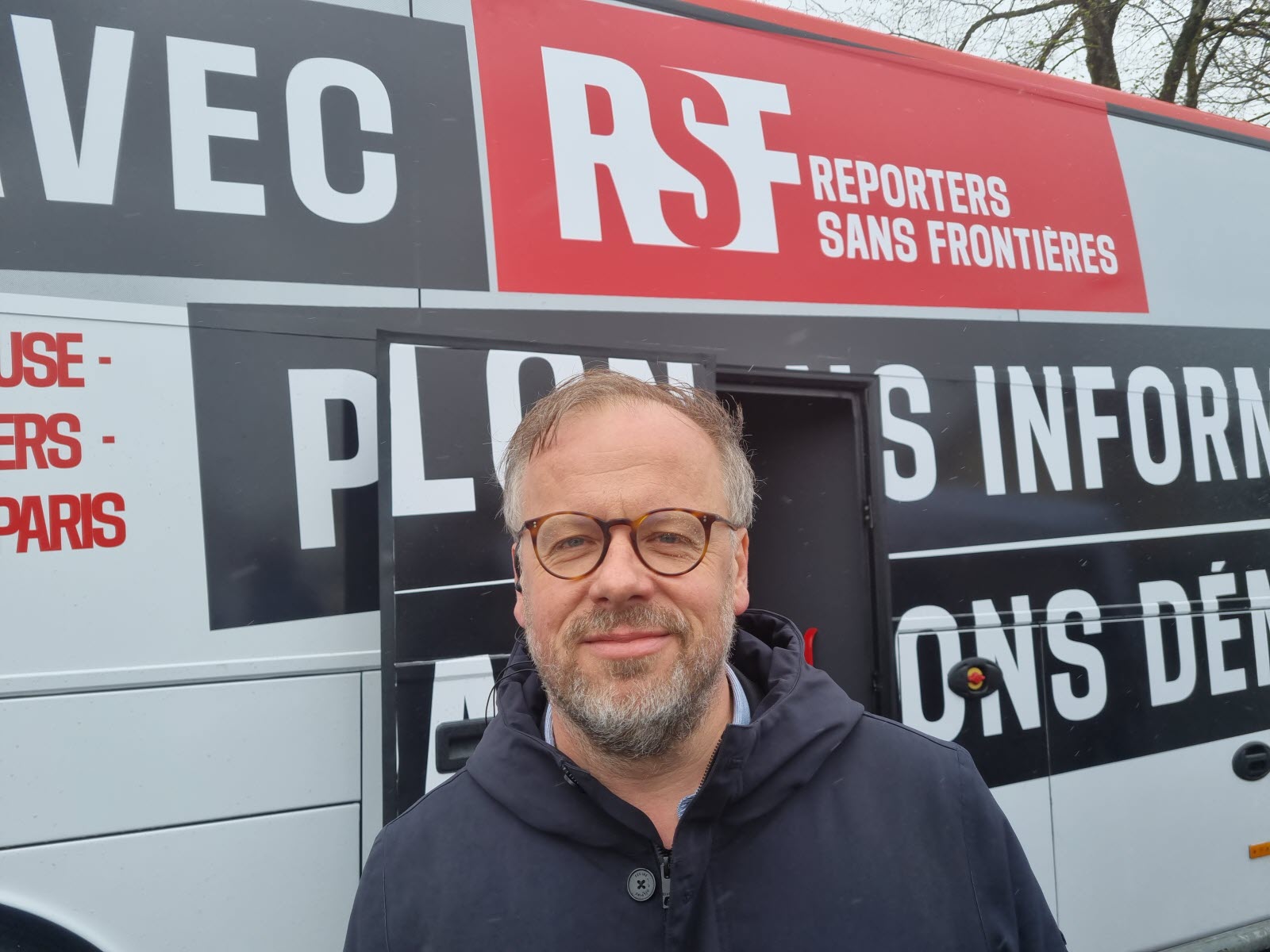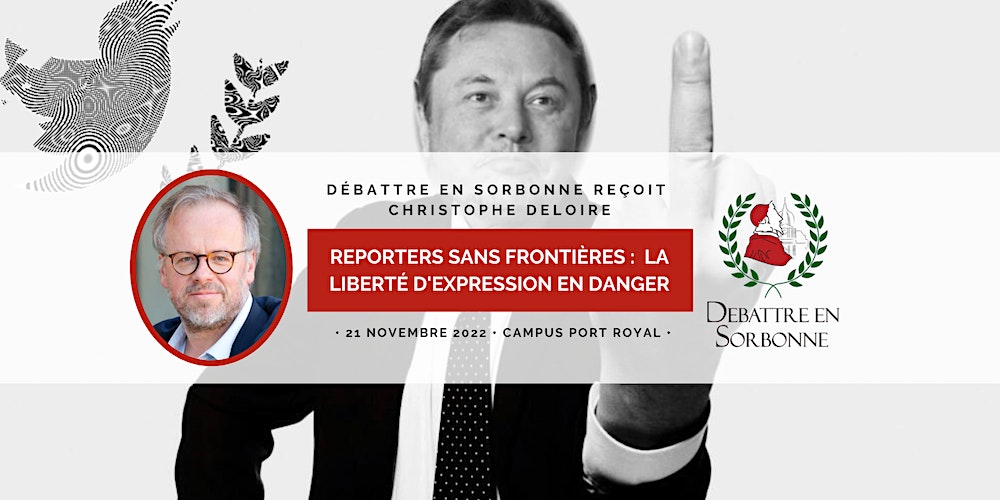By Evi Tsakali,
On November 21st, an association of my university (Débattre en Sorbonne) organized a conference on the occasion of which Christophe Deloire, the Secretary General of Reporters Without Borders, honored us with his presence. Unfortunately, the conference was rather short in duration and our guest speaker did not have much time to further elaborate on some interesting (and some quite daring) ideas that he mentioned in his responses to the often inadequate questions of the moderators. However, I managed to take notes and collect some bits and pieces of his intervention to group them into sections for the purposes of this article, since it would be a shame not to include the statements of the Secretary–General of Reporters Without Borders in our youth–led, independent website. But first of all, some introductive information on Mr. Christophe Deloire:

Christophe Deloire has been Secretary General of Reporters Without Borders (RSF) since 2012. Between 2008 and 2012, he was the director of one of the largest French schools of journalism, the CFJ. Before that, he worked for the news magazine Le Point from 1998 to 2007, in the Society and Politics departments as an investigative reporter. He also previously worked for the ARTE and TF1 television channels. In 2018, he launched the Information and Democracy Initiative, which led to the signing of a Partnership in 2019 by 38 countries and the creation of the Information and Democracy Forum, which he chairs.
During the conference at La Sorbonne, Mr. Deloire not only expressed his thoughts on exercising journalism but also on the control of digital platforms and the urgent need for a legal framework.
Is there a perfect journalist?
Comparing the Anglo–Saxon model –according to which facts and opinions are completely detached– to the USA, where the media are extremely polarized (affiliated either to the left or to the right) with Fox News being a characteristic example, he expressed his concern about the media situation in France is gradually evolving in such a state. Nevertheless, he admitted that there is no ideal system, even when it comes to the journalist individually; there is the impression an editorialist who has never been on the field is clueless compared to the reporters on the respective territory. According to Mr. Deloire, “the editorialist who has never been to the field lives in his bubble, but being on the field itself does not mean anything”.
The importance of a legal framework through the eyes of a non–jurist
In 1986, the size of media outlets was controlled by law in France, so as to guarantee pluralism and prevent the concentration of information on specific actors. However, today —as the SG pointed out— “after 200 years of construction of checks and balances we have left the obligation regime of social media accounts to the hands of specific private individuals”. Despite them functioning like ordinary media outlets when it comes to diffusing information, social media platforms –and by extension their owners– are not controlled in the same manner; they have a lobbying power, a reinforced political force, that is almost normalized. Consequently, we are witnessing phenomena of influencers uploading their own version of the truth, AI proposing different results to users providing them with their tailor–made version of the truth, and in a sphere where —contrary to conventional media outlets— there are no considerations of religious or political neutrality; and no control thereof. As he summed it up, we are witnessing an “ecosystem of information” and those who set the rules are the [social media] platforms that are usually led by only one individual, “having left the rule–making to the millionaires of Silicon Valley”.

In order to deal with the new circumstances, the Secretary–General underlined that “legal creativity” is essential to changing paradigms. Aware of the fact that the audience consisted —in its majority— of law students, he did not hesitate (causing smiles and chuckles in the audience) to criticize jurists for always trying to just revise the pre-existing rules; if we want to live up to the expectations of the digital era and that “ecosystem of information” it is imperative to “invent” law; to come up with brand new principles and doctrines.
Tips and tricks on starting off as an aspiring journalist
As you may suspect, that was a question from the audience (and more specifically the last one), to which our guest responded in a way that I personally did not expect; he claimed —judging from his experience in leadership positions in media outlets— that becoming a journalist does not necessarily require a degree. He explained that “calling any editor-in-chief after 19:00, so that their secretary will not be there anymore and you will reach them directly” will –especially if the written contribution is well prepared and, if needed, the calls are consistently persistent– chances are that it will lead to a job offer. As such, he concluded by inciting young people to just do it (no ad intended here).
PS: As the editor–in–chief of the English Edition, I will definitely agree that there is no harm in attempting a debut as an aspiring journalist, and if you finally decide to do so, feel free to join us and write for our wonderful and diverse column!
References
-
Débattre en Sorbonne. debattre-en-sorbonne.com. Available here
-
Reporters Without Borders. rsf.org. Available here




